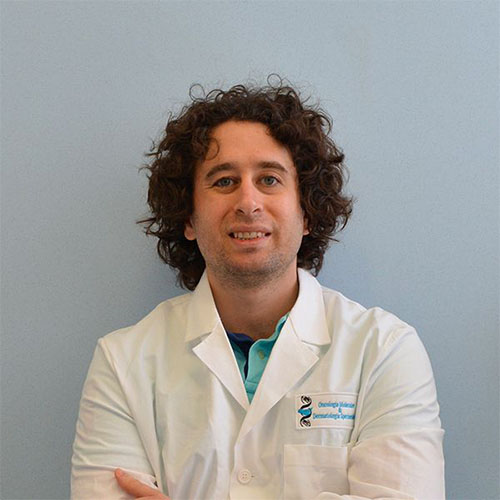
Simone di Franco
Affiliation: Università degli studi di Palermo
Unit: Department of Surgical and Oncological Sciences
Laboratory: Cellular and Molecular Oncology Laboratory
Position: Assistant Professor (MED/46)
Description
Simone Di Franco, Ph.D., started his academic training at the University of Palermo. In October 2007 he obtained the bachelor’s degree in “Biotechnologies Applied to Feed Industry” with the final grade of 110/110 summa cum laude. He started his research activity in 2008 as a trainee at the Laboratory of Cellular and Molecular Physiopathology, headed by Professor Giorgio Stassi, during the master’s degree internship in Biotechnologies for Industry and Scientific Research, at the University of Palermo, which ended in November 2009 with the final grade of 110/110 summa cum laude. In 2010, he was selected and granted from the University of Palermo to join the International Ph.D. in Immunopharmacology, under the supervision of Prof. Stassi, working on the role of p63 in breast cancer progression.
During the Ph.D., he had the chance to join the Laboratory of Experimental Oncology and Radiobiology (LEXOR), at the Academic Medical Center (AMC, Amsterdam) under the supervision of Prof. Jan Paul Medema, for 12 months. In March 2014 he obtained his Ph.D. with a thesis titled “Colon cancer stem cells: to be or not to be, is that the question?”, with Doctor Europaeus certification.The collaboration with Prof. Medema’s group has been extended for a further year, thanks to a PostDoc fellowship, sponsored by Sapienza University of Rome, until December 2014. He returns to Italy on January 2015 and thanks to an AIRC financing (he was granted with an annual PostDoc AIRC fellowship), was able to investigate the role of the tumour microenvironment, with a particular focus on the adipose tissue, on colorectal cancer progression.
In 2017 and 2018, he was granted by Fondazione Umberto Veronesi with annual PostDoc fellowships, thanks to which he had the possibility to study the role of adipose-derived mesenchymal stem cells paracrine action in breast cancer. In January 2017 he became “Cultore della Materia” and Exam Committee Member for Pathology course (MED/04), at the University of Palermo.
The 31st of December 2018 he has been recruited by the University of Palermo as Research Fellow (MED/46), working at the Department of Surgical Oncological and Stomatological Sciences, Laboratory of Cellular and Molecular Physiopathology, headed by Prof. Giorgio Stassi. On November 2021 he has been recruited as Assistant Professor (MED/46).
His current research is focused on the role of tumour microenvironment in cancer progression, in particular, the role of adipose tissue with its direct or indirect (through the regulation of immune cells) effect on cancer stem cells, in colon and breast cancer.
In the last years, he had the chance to study the phenomenon of acquired resistance of cancer stem cells to anti-tumour treatments. Indeed, recent studies have shown that cancers are characterized by a great intra- and inter-tumour heterogeneity, for this reason, better knowledge about the mechanisms responsible for the escape of cancer cells to anti-tumour regimens is fundamental for the application of a “personalized therapy”.
A combinatorial treatment using different molecules blocking different pathways, with the optimization of beneficial and side effects, seems to be the best way to face cancer disease. For these reasons his future research interests aim at defining the best method (i.e., tumour organoids as avatar of tumour patients, co-culture of cancer stem cells and tumour microenvironment cellular components) to have a fast and reliable system to test different combinatorial therapeutic regimens (based on colon cancer staging, molecular subtype, and mutational status), in vitro and in vivo, to start preclinical studies.
